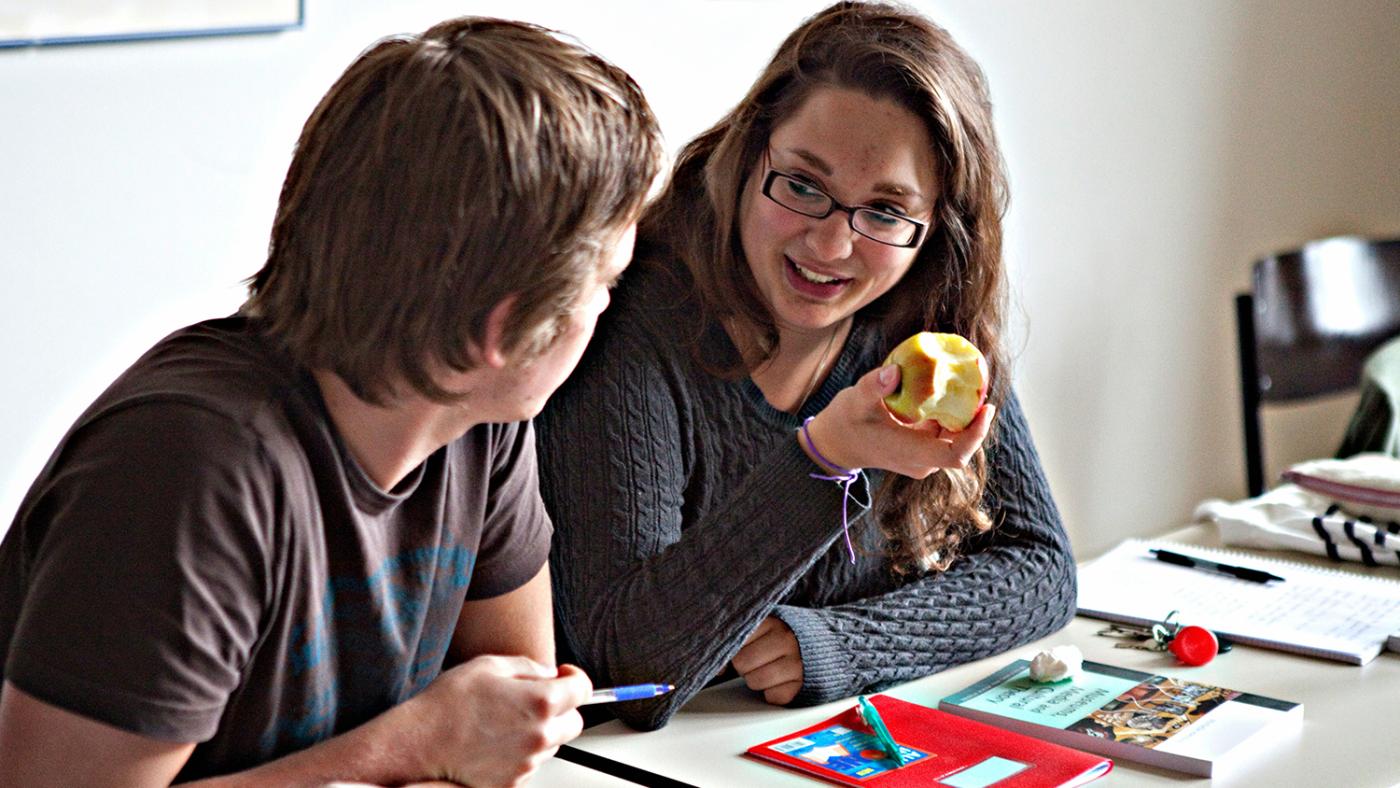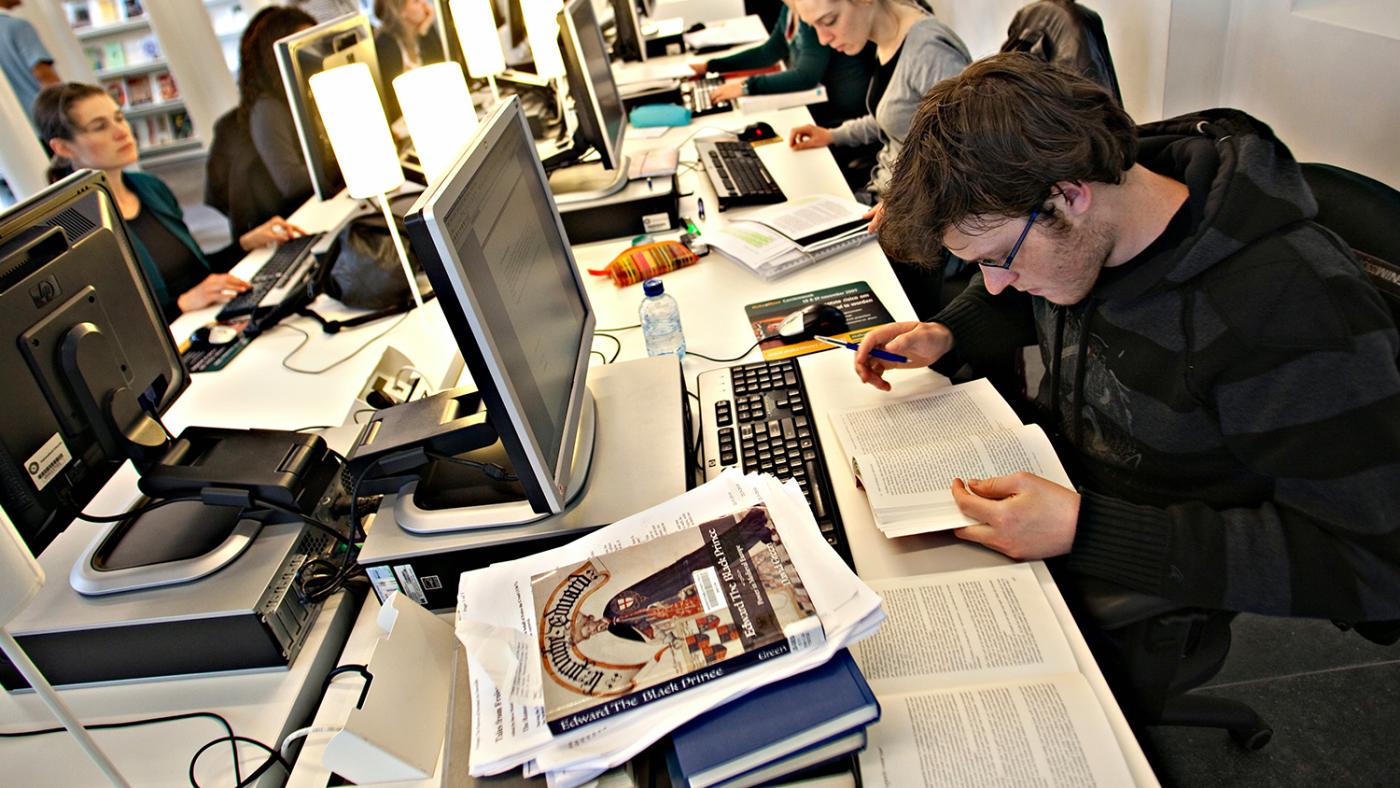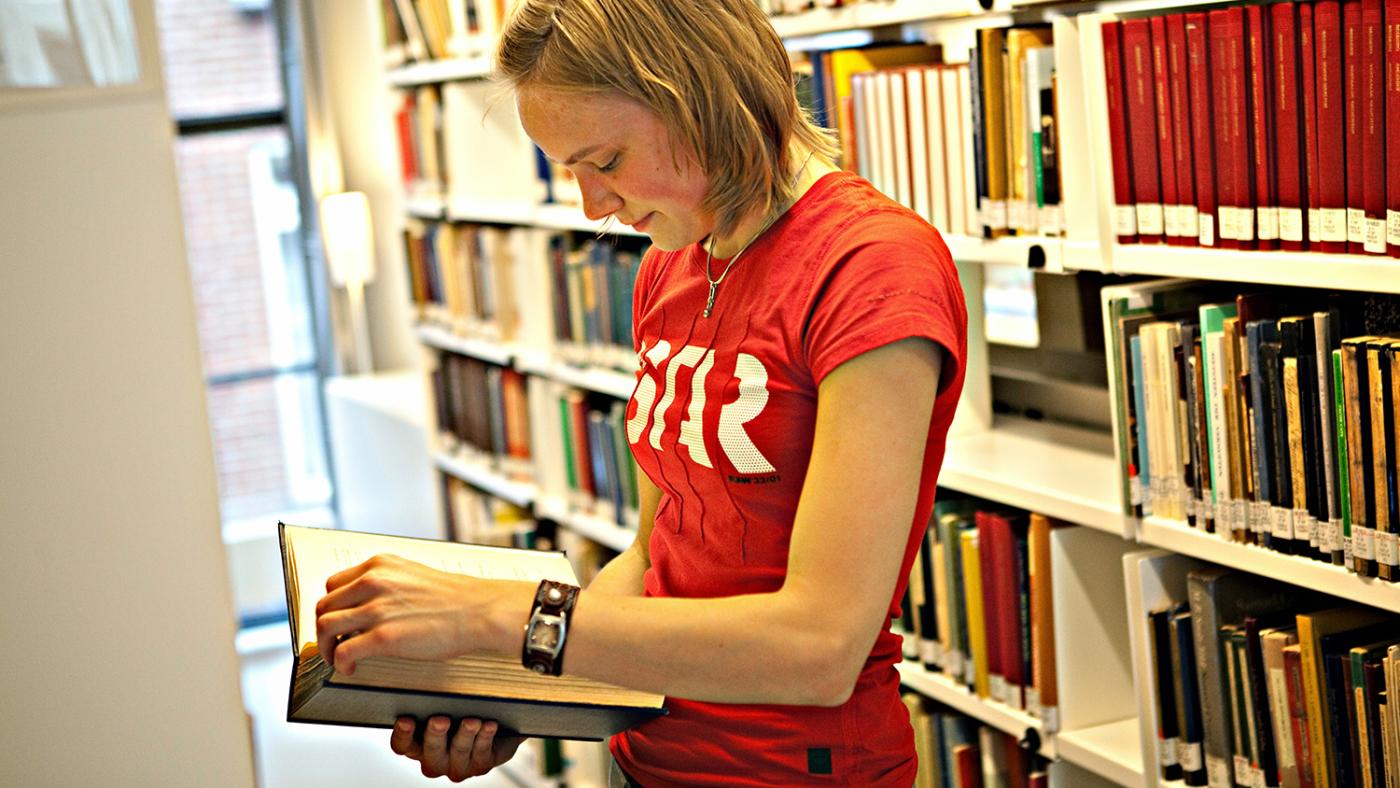Programmes with two tracks:
Dutch-track students also benefit from an international environment

Many Dutch universities have been asking for mechanisms to control the influx of foreign students for years. For a number of Dutch politicians, this requires a stricter approach to the approval of English-taught education. The bill proposed by the outgoing Minister of Education, Robbert Dijkgraaf, for example, establishes enrolment quotas for specific tracks within a programme. This way, the intake in the English track would be managed while the Dutch-taught track would remain unrestricted. The association of Dutch universities, UNL, welcomes this idea. Others, like the MP Pieter Omtzigt and his new party New Social Contract, would rather see Dutch universities offer no English-taught programmes at all, and that goes for both the Bachelor’s and the Master’s level.
In this heated debate, some people wonder if English-taught tracks will soon disappear. Others question whether the existence of two tracks is even necessary. Why would a university create an English-taught programme that already exists in Dutch? Isn’t that just a way to make extra money? The coordinators of the three programmes answered these questions and more.
Media & Culture: “We are a path-breaking department”
This academic year, there are 76 students enrolled in the Dutch-taught track of the Bachelor’s in Media & Culture, and 89 students in the English-taught one. The content is not entirely the same but the two programmes sometimes intersect when students from the Dutch track take courses in English together with the students of the English-taught track.
The coordinators think it’s justified for the two tracks to exist. “Many students go for the Dutch track because of the greater familiarity they have with the Dutch language or because they’re uncertain about their ability to write academic papers in English,” explains Jasper van Vugt, coordinator of the Dutch track. Many of the students who choose the English-taught track are Dutch nationals who were educated bilingually or grew up abroad because their parents were expats. Others follow the programme in English because they would like to have a career outside of the Netherlands, so they appreciate the opportunity to discuss topics with people from other countries.
For Anne Kustritz, coordinator of the English track, the need for an English-taught option is as clear as day. “Media is produced transnationally. It circulates transnationally. Most of the major companies in the market, both as providers of content we all watch and as employers themselves, are transnational corporations.” Kustritz believes that it would be impossible to understand the future of media studies without taking a transnational approach, which is why language restrictions could jeopardise the department’s ability to maintain its reputation.
But, if an international perspective is so important for the field, aren’t the students in the Dutch track missing out? Kustritz doesn’t think so. She argues that Dutch-track students still get to benefit from the advantages of the international classroom when the two tracks intersect. “Some courses have a joint lecture and some second-year courses are blended for all sessions.” When this happens, Dutch students are allowed to write their assignments in Dutch. “Therefore, the two-track system offers Dutch-track students many of the benefits of the international classroom without detracting from their development in advanced Dutch-language writing,” explains Kustritz.
First-year student Lilly Hartsteen doubted whether she should choose the English-taught track, but in the end she decided to go for the Dutch one. “The fact that the world is so globalised and that English language use is so widespread makes it even more important to make sure that I keep up with my Dutch,” says the student, who was already noticing that she could no longer remember the Dutch translation to certain English terms. “I definitely don’t want my Dutch to deteriorate any further.”

A class in the Media & Culture programme. Photo: Anthony Donner/DUB
In a recent anonymous poll of Media & Culture students, the flexibility to work in Dutch and still gain the benefits of international perspectives was often complimented by Dutch-track respondents, according to Kustritz. The coordinator of the Dutch track, Jasper van Vugt, notes that Dutch-track students “are always reading texts in English. So far, I’ve never received any complaints.”
So, what do the two coordinators think of the proposal to contain the influx of international students through language restrictions that could affect their programme? “There is a lot of uncertainty. It’s not a great feeling,” says Van Vugt. “Some English colleagues are a bit anxious about their careers, although both at the Faculty and the Executive Board levels, the university is very supportive of our programme and thinks that we have a good case for both our tracks.” Kustritz adds that Dutch students would be harmed if a future law would turn out to reduced job posts in the Netherlands for foreign educators and researchers. “Part of serving Dutch students is bringing the best and brightest of the world to the Netherlands.”
History: “For us, ‘added value’ is not a buzzword”
Each year, Geschiedenis, the Dutch-taught History track, gets between 210 and 250 students, while its English counterpart gets 60 to 90 first-year students, of whom 40 percent come from abroad and the rest has the Dutch nationality.
The English track was created as a pilot in 2017. One year earlier, Geschiedenis students were asked whether anyone would be interested in following the programme in English instead, and a group of 25 students said yes.
Those students cited a variety of reasons for their interest in an English-taught option. In addition to those who had been educated bilingually in the Netherlands, there were expats returning from abroad, people interested in emigrating, and people wanting to work in academia. “But there were also those who were simply interested in the extra challenge,” says Sarah Carmichael, coordinator of the English track.
For two years, the new programme was promoted internationally at school fairs, but today, there is no recruitment anymore. International students discover UU’s Bachelor’s in History through word of mouth or searching on the Internet.

UU's Bachelor's programme in History. Photo: Anthony Donner/DUB
Content-wise, there are many similarities between the tracks, and they intersect thanks to the option to take courses together in English in the second year. Dutch-track students also benefit from an international environment outside of the classroom, thanks to a bilingual study association.
Like her Media & Culture counterparts, Carmichael thinks that the importance of an English track in History is evident. “For us, ‘added value’ is not an empty terminology or a buzzword”, she says. “An international classroom enriches the historical debate. Take the Cold War, for example. If you have someone who has been schooled in an educational system on the other side of the Iron Curtain, you get a very different perspective.”
In addition, she notes that although not everyone with a History degree goes on to pursue an academic career, universities are supposed to prepare students for one. “If their ambition is a career in science, it is useful to be able to work in English at a certain level. Most academic conferences around the world take place in English, and that's not something you can simply turn back the tide on by saying ‘We're going to do everything in Dutch now.’”
However, this doesn’t mean that the Dutch track is less important. “The fact that there are two and a half as many students following the Dutch track than the English track is a clear sign that there is a desire to study history in Dutch and that we shouldn’t ignore this,” ponders Carmichael.
Boris Wesseldijk studies in the Dutch-taught track, a decision that was a no-brainer for him. “My mother tongue is Dutch, so it didn’t take long for me to make a decision, although I must say that writing in English is much more challenging and fun. It also allows you to reach more people, so I plan to write as many papers in this language as possible.”
Tessa Russchen, from Groningen, went for the English track despite being Dutch. That’s because she attended bilingual primary and secondary schools. “Before I joined the History programme, I studied journalism for a year, but that was in Dutch and I was missing an English speaking learning environment. Moreover, I chose to study in English because I want to pursue International Relations, so it would be useful to continue to use and improve my English skills.” The wish to go on an exchange semester also contributed to that decision. Tessa is in Dublin right now.
As a Historian, Carmichael can’t help but stress that it hasn’t always been the norm for countries to stick to their national language in higher education. “Latin was the language of instruction for a long time. French also used to be an overarching language across borders. It’s not a coincidence we say lingua franca.” She observes that History could actually be called a multilingual programme instead of a bilingual one, as international students often use sources in their own native languages when writing their papers and theses.
Literary Studies: “We should combat provincial views”
This academic year, the Literary Studies/Literatuurwetenschap programme attracted 25 students to its Dutch track and 64 students to its English track, of whom half are Dutch. Most of them were educated bilingually at secondary school and therefore have an affinity with the English language, observes Peter Schrijver, head of the Department of Languages, Culture and Communication.
Schrijver explains that the Dutch track stimulates academic teaching in Dutch, avoiding a total switch to English at the undergraduate level. But the benefits of the international classroom are, once more, guaranteed by a number of shared courses in English in the second year, he says. That doesn’t surpass one-third of the track, however.
According to Schrijver, the main reasons for choosing a Dutch track in Literary Studies resemble those named by the History and Media & Culture programmes: they either prefer Dutch as a teaching language or do not feel confident enough to start an English-taught track fresh out of secondary school.

Photo by Anthony Donner/DUB
That was the case of student Ruben van Vessem. “I was afraid of studying at university level in English because I went to a Dutch high school. The content of the tracks itself is in our case nearly the same, so it did not really matter what you chose,” he says. He is really happy with his choice. “It taught me how to read, write, and think academically in both a Dutch and English setting.” He also values the presence of international students in class. “It makes things more lively.”
But this doesn’t mean there were no hiccups. “The transition between Dutch courses and English was quite jarring. Our first English course, Cultural Criticism, did nothing to introduce Dutch students to discussing and writing in English, and finding support was really difficult.”
Chloë Stol, a Dutch student in the English track, made this choice partly to avoid such a problem. “I figured that I might as well start with English right away, this would also make sure I didn’t have to change main languages abruptly later.”
Schrijver is particularly concerned about proposals to steer the influx of foreign students through language restrictions. “The purpose of a university’s language policy is not meant to control the influx of international students but rather to be transparent about the languages used. It’s very unheard of that a lawmaker takes a decision on what is and what is not taught in a programme, and how it’s taught,” he says.
Dijkgraaf’s bill, for example, proposes that higher education institutions should better justify to the Ministry of Education why it is necessary to teach in languages other than Dutch. A committee would be tasked with analysing requests for English-taught degrees based on “efficiency” instead of the current “added value”. That’s something Schrijver takes issues with.
Schrijver: “The committee put at the steering wheel is called ‘Committee on the Efficiency of Higher Education’ (Dutch acronym: CDHO). It’s a pretty hard-nosed committee that usually looks at money and statistics related to the job market. So, if a programme argues that it needs to be taught in English because that would be an added value for the job market, CDHO would reply: ‘Okay, show me the numbers. Where do your graduates end up?’ As if it were easy to show that…” With a sigh, he concludes: “This needs to be worked out, but the first signs are not positive. I’m concerned.”
Like Carmichael, Schrijver believes in a multilingual university. He thinks we should combat “provincial” views defending that only one language should be used – and that also goes for those who think that “internationalisation” means doing everything in English. “That is not what internationalisation is about. It’s about speaking more than one language, which is typically the European way of doing things.”